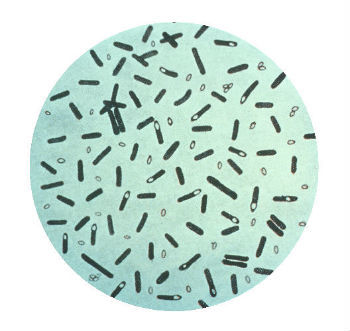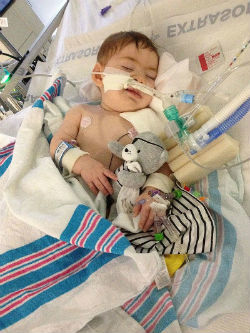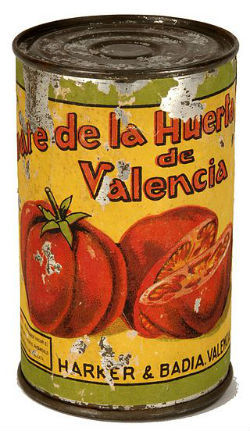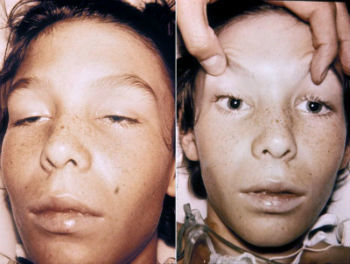Botulism is a rare disease caused by bacteria . The etiologic agent is Clostridium botulinum .
This bacterium is found in the soil and in foods of plant and animal origin. It releases neurotoxins (toxins that attack neurons) that can be lethal, causing strong poisoning through its spores.

The diagnosis of the disease is made by physical examination, evaluating the symptoms that the person presents.
In addition, blood and stool tests may indicate the presence of spores of this bacteria in the body.
Streaming
The transmission of botulism occurs mainly through the consumption of contaminated food and untreated water. In addition, the causative bacteria can reach the body through injuries.
Note that botulism is not a contagious disease, so it is not transmitted between people.
Types
There are several types of botulism, namely:
- Infant botulism: also called lactating botulism or intestinal botulism, this type of disease affects babies under one year of age. The bacteria reaches the gastrointestinal system, causing abdominal pain and constipation.

Food botulism : transmitted by contaminated food, especially canned (canned) that are expired, for example, meats, hearts of palm, pickles, honey, etc. This is because this rod-shaped bacteria can survive in environments with little oxygen (anaerobic bacillus).

Wound botulism : skin lesions can be favorable for the contamination of the bacteria that causes botulism. Through the released toxins, this type can cause serious skin infections. Injecting drug users are highly prone to contamination.

Canine Botulism
Canine botulism can manifest in domestic animals such as dogs. These animals contract the disease through the consumption of canned food, garbage, contaminated water and carcasses of dead animals.
The symptoms are very similar to those of humans, for example, facial paralysis, weakness and difficulty in swallowing. In most cases, dogs die.
Bovine Botulism
Botulism in ruminants, also called “fallen cow disease”, affects the animal’s central nervous system causing paralysis.
This usually occurs when these animals ingest the spores of the disease-causing bacteria in pastures.
Bovine botulism can also occur with the ingestion of contaminated water or due to the environmental conditions in which they live. In Brazil, it has been one of the main causes of cattle deaths.
Symptoms

Botulism symptoms can appear 18 hours after being infected. This will depend on the amount of toxin present in the body. The main symptoms are:
- Facial weakness
- Eyelid trim
- Blurred and double vision
- Dizziness
- Paralysis
- Constipation and difficulty passing urine
- Abdominal cramps
- Nausea and vomiting
- Dry mouth
- Difficulty swallowing or speaking
- Difficulty breathing
Treatment
The bacterium that causes botulism has an incubation period of up to 10 days. In most cases, the patient’s recovery is slow and can take weeks.
The treatment of botulism is done through medications that fight toxins from the causing bacteria, called antibotulins.
As it is a serious and often fatal disease, the patient must remain at rest and under observation. In most cases, the person remains in the hospital.
Depending on the cases, food intake through veins (intravenous) may be recommended, as the patient has difficulty breathing and speaking.
In addition, breathing apparatus can be recommended by specialists.
It is worth remembering that if it is not treated, botulism can lead to the death of those infected. The most common complications that lead to the deaths of patients are: respiratory failure (paralysis of the respiratory muscles), suffocation, involvement of the nervous system and infections.
Prevention
The prophylaxis of the disease is done by avoiding the consumption of canned foods, especially those that are out of date.
Honey is one of the most dangerous, and therefore children under 1 year old should avoid consuming this food.
If you consume, you should check the origin of the product, the condition of the packaging, for example rusty cans.
It is recommended to cook these foods, since high temperatures eliminate the bacteria. In addition, the intake of treated water is essential.
